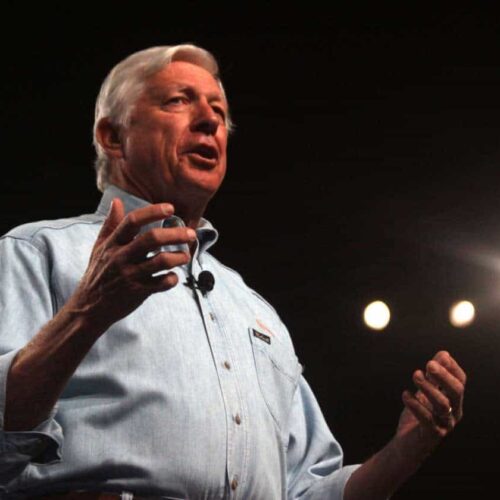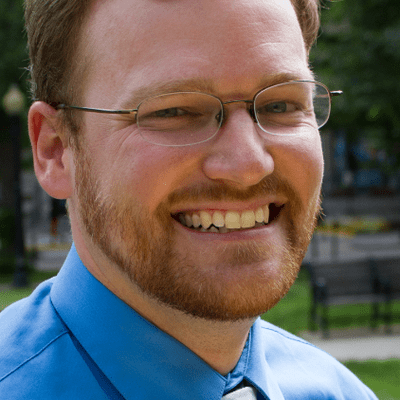Introduction
Ahead of Tuesday’s GOP presidential primary in Wisconsin, wealthy investor Foster Friess is giving his preferred candidate, Rick Santorum, a boost. This time though, rather than contributing to a pro-Santorum super PAC, he’s taking matters into his own hands.
Friess has personally spent $8,675 to help his friend win, including roughly $1,000 each for a radio ad touting the former Pennsylvania senator and a newspaper ad, both in Friess’s hometown of Rice Lake, Wis.
Citizens have long been free to spend their personal funds directly on independent expenditures, which cannot be coordinated with candidates’ campaigns, but such spending is exceedingly rare. In fact, Friess is just the third individual to make personal independent expenditures this election cycle, according to an iWatch News analysis of filings with the Federal Election Commission.
Typically, people tend to give money to existing organizations like super PACs, which can pool resources, produce more efficient ad buys and “capitalize on the expertise” of the people running the group, said attorney Paul Ryan, of the nonpartisan Campaign Legal Center.
Ryan commended Friess for being willing to attach his name to these advertisements.
If you are willing to spend money on a political advertisement, Ryan said, “you should stand by its content.”
FEC records indicate that Friess, who now resides in Wyoming, spent more than $4,000 at The Floridian Gardens, which bills itself as Eau Claire’s “premiere reception hall,” on a luncheon where he said that Santorum is “the authentic leader America needs,” according to a tweet he posted about the event.
Friess spent $1,620 for a breakfast gathering at Lehman’s Supper Club in Rice Lake, which advertises itself as “Northwest Wisconsin’s finest restaurant,” and several hundred dollars on “printed cards.” Friess could not immediately be reached for comment by iWatch News.
Sheila Krumholz, the executive director of the nonpartisan Center for Responsive Politics, said that individual donors are often “reticent” to have their names so closely associated with political ads.
“I doubt that we’ll suddenly have a glut of individuals (making independent expenditures) this election cycle,” she said.
With the Federal Election Campaign Act of 1974, Congress set a $1,000-per-candidate limit on how much individuals could spend on independent expenditures. But the U.S. Supreme Court declared that limit unconstitutional in its landmark Buckley v. Valeo decision in 1976.
In 2010, the U.S. Supreme Court relied on Buckley in its controversial Citizens United v. Federal Election Commission ruling to declare that the government could “not suppress political speech based on the speaker’s corporate identity.”
In the aftermath of Citizens United, super PACs, which are legally allowed to receive unlimited contributions from individuals, corporations and unions, have emerged as the preferred vehicles for buying independent political advertisements.
Friess himself has long been a major political player, but his public profile has increased this election cycle, thanks to his role as a major super PAC donor.
Between November and February, he donated $1.6 million to the main pro-Santorum super PAC, the Red, White and Blue Fund. That makes him the group’s top donor, with his money accounting for more than a quarter of the nearly $5.8 million it raised through the end of February.
Friess also gave $50,000 to the Leaders for Families super PAC, which spent more than $130,000 advocating for Santorum ahead of his upset victory in the Iowa caucuses.
And he has given $100,000 to the super PAC of the Tea Party-aligned group FreedomWorks. That super PAC has raised $3.5 million while remaining neutral in the GOP presidential primary and has already spent more than $173,000 opposing the re-election of President Barack Obama.
Including these super PAC donations, Friess, along with his wife, Lynette, has donated nearly $4 million to all federal candidates, PACs and party committees, according to the Center for Responsive Politics.
No other candidate has benefited more from this money than Santorum, according to the Center, who, between his leadership PAC and campaign committee, has collected $57,000 from Friess over the years.
Friess in the past has kept a relatively low profile, but that ended when he said on MSNBC that an inexpensive form of contraception for women would be for them to put an aspirin “between their knees.”
Afterward, Santorum publicly chided Friess, who later apologized for the comment.
Read more in Money and Democracy
Money and Democracy
FACT CHECK: Latest attacks from Santorum evoke deja vu
Money and Democracy
Finance industry makes up nearly half of pro-Romney super PAC’s donations
Investment kings dominate pro-Romney attack-PAC


Join the conversation
Show Comments